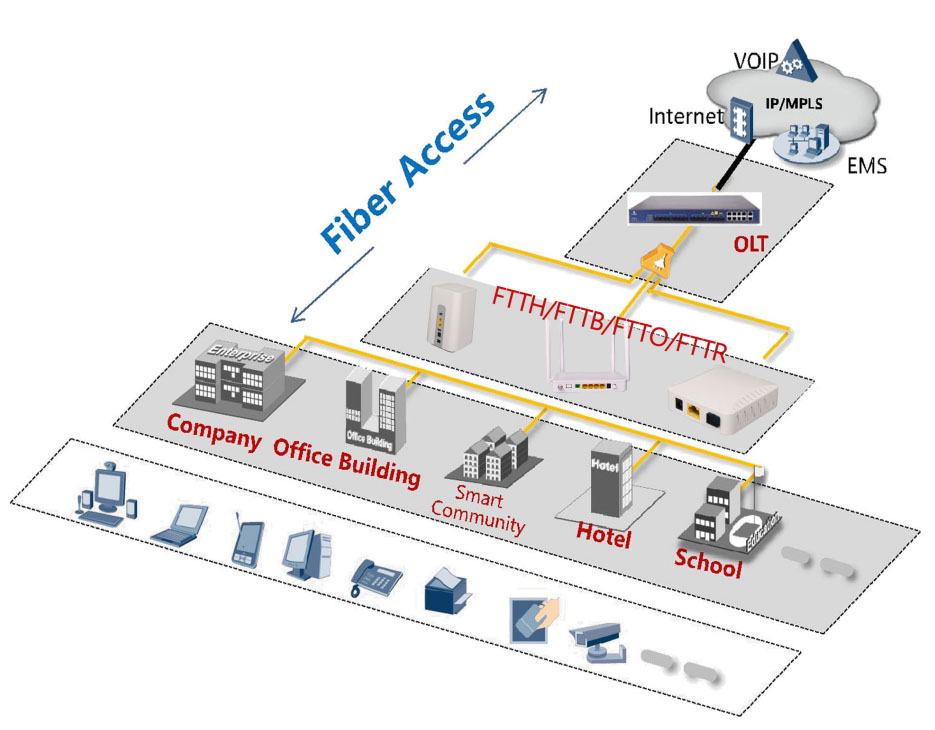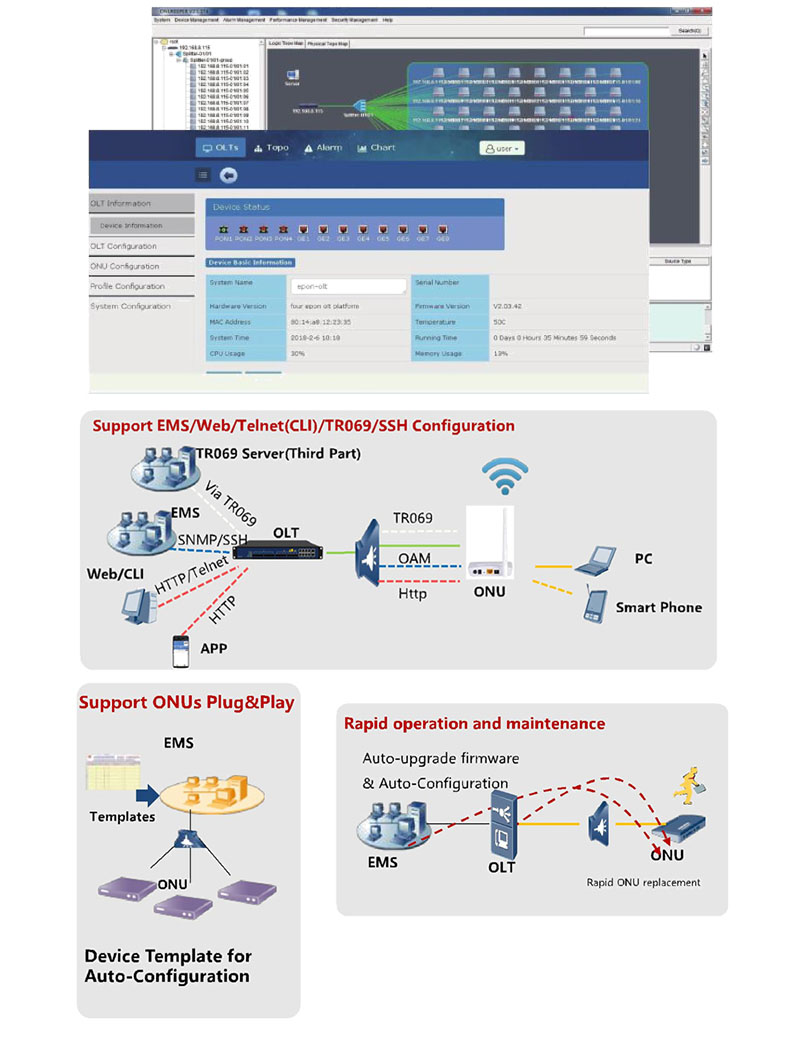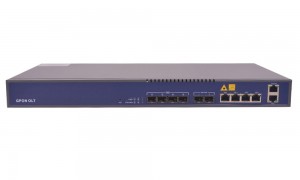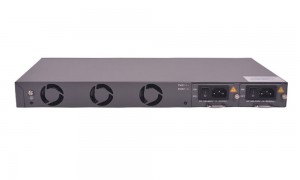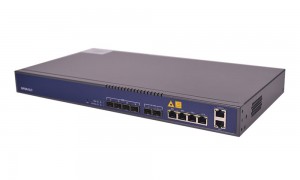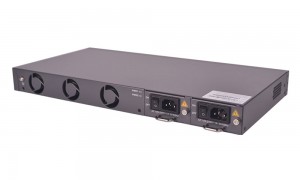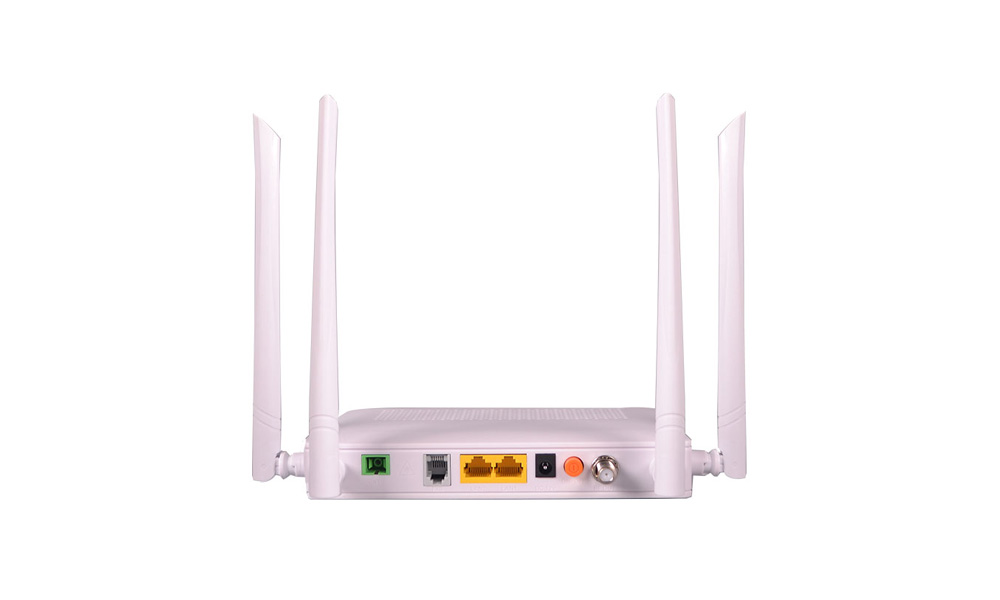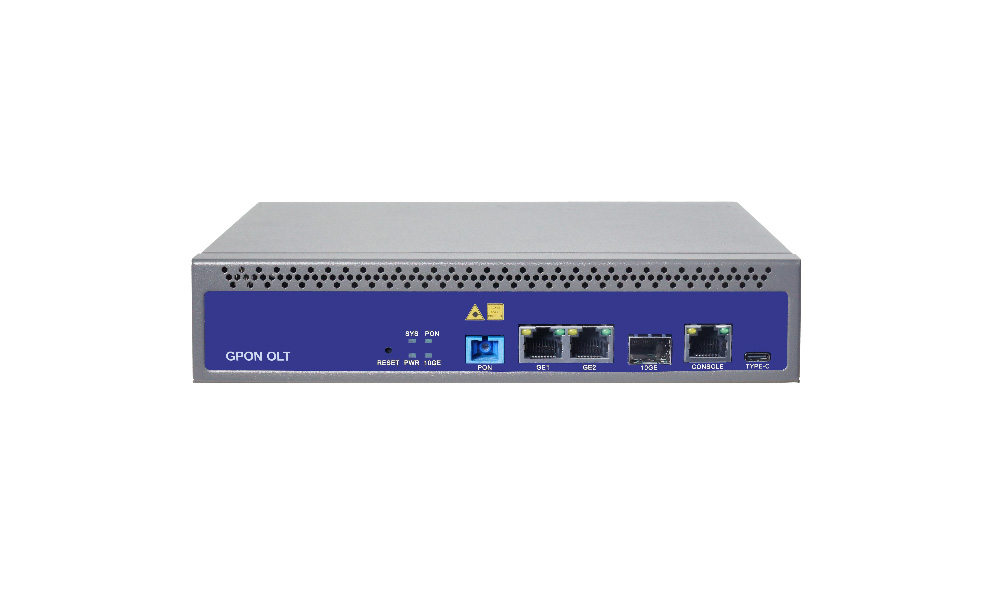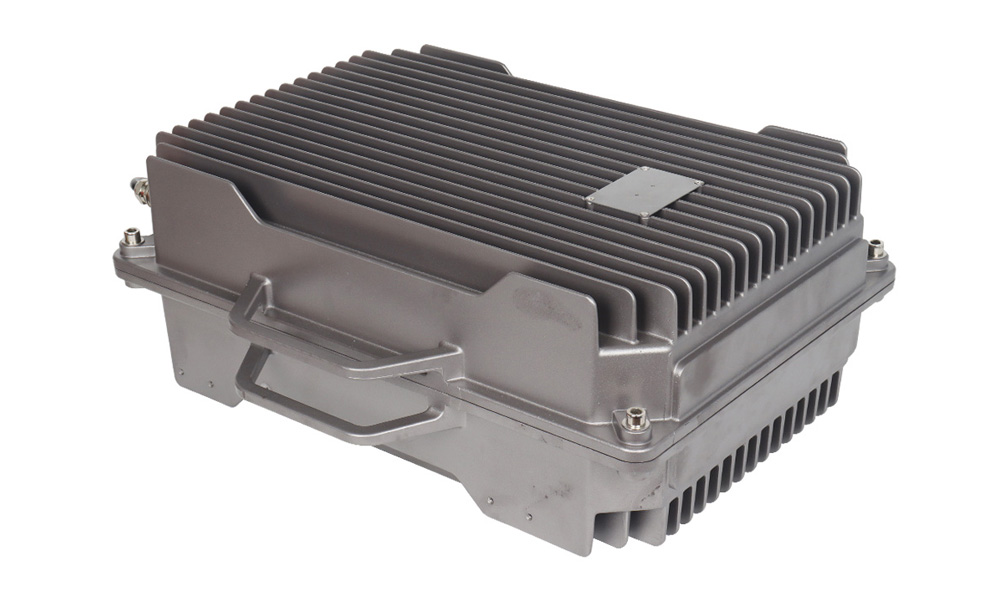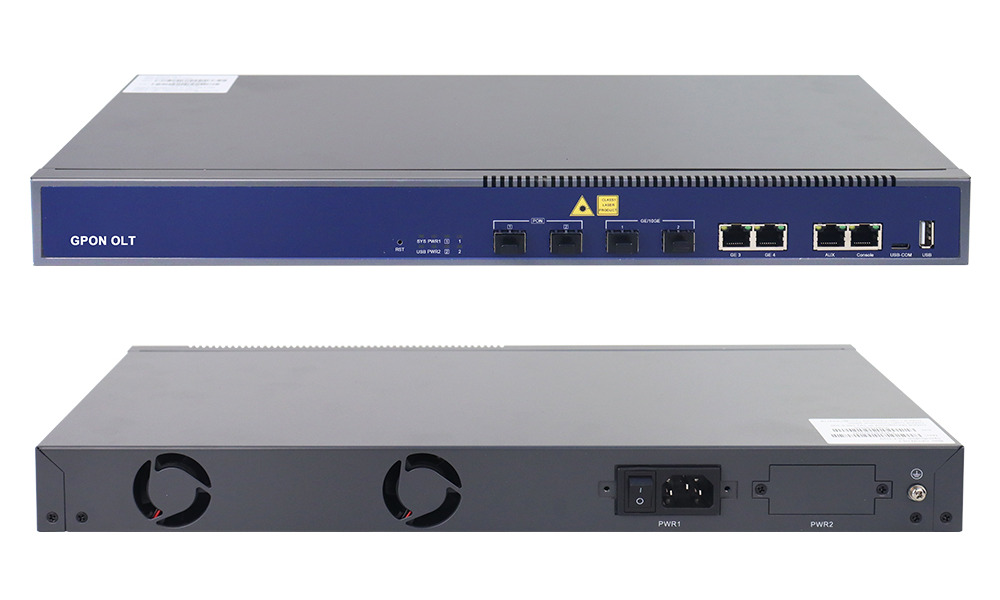FTTH Fiber Optical Line Terminal Mini GPON OLT 4 PON Ports
Product Description
OLT-G4V is a small-capacity cassette GPON OLT, meeting the requirements of ITU-T G.984/G.988 and relative standards of China Telecom/Unicom GPON, with super GPON access capacity, carrier-class reliability, and the complete security function. It can satisfy long-distance optical fiber access requirements on account of its excellent management, maintenance, and monitoring capability, abundant service features, and flexible network mode.
OLT-G4V can be used with the NGBNVIEW network management system so as to provide users with comprehensive access and a perfect solution. Designed with 1RU 19" Rack, it provides 4*Downlink GPON ports, 4*GE+2*GE(SFP)/10GE(SFP+) Uplink Ports, perfectly suitable for Broadcast three in one, video surveillance network, enterprise LAN, Internet of Things, etc.
| Product | User interface | Unlink interface |
| OLT-G4V | 4PON Port | 4*GE+2*GE(SFP)/10GE(SFP+) |
| OLT-G8V | 8PON Port | 8*GE+6*GE(SFP)+2*10GE(SFP+) |
| OLT-G16V | 16PON Port | 8*GE+4*GE(SFP)/10GE(SFP+) |
Functional Features
| Item | GPON OLT 4 Ports | |
| PON Features | ITU-TG.984.x;SN/Password/SN+Password/LOID/LOIDPassword/LOID+LOID Passwordauthentication modes; Terminal access up to 60km on a single fiber; 1:64 split ratio on single PON port, scalable to 1: 128 split ratio; DBA algorithm, and the particle is for 64Kbit/s; Standard OMCI management function; ONU batch software upgrade; PON port optical parameter detection; |
|
| L2 Features | MAC | MAC Black Hole; Port MAC Limit; 32K MAC (packet exchange chip cache 2MB ); |
| VLAN | 4K VLAN entries; Port-based VLAN classification; Uplink static QinQ and flexible QinQ(Stack VLAN); Uplink VLAN Swap and VLAN Remark; GVRP; |
|
| Spanning Tree | STP/RSTP/MSTP;Remote loop detecting; | |
| Port | Bi-directional bandwidth control; Support static and LACP dynamic port aggregation; Port mirroring; |
|
| Security Features | User’s Security | Anti-ARP-spoofing;Anti-ARP-flooding; IP Source Guard for creating IP+VLAN+MAC+Port binding; Port Isolation; MAC address binding to the port and MAC address filtering; IEEE 802.1x and AAA/Radius authentication; |
| Device Security | Support the control layer to prevent a variety of DOS attacks and virus attacks against the CPU; SSHv2 Secure Shell; SNMP v3 encrypted management; Login Security IP via Telnet; Hierarchical management and password protection of users; |
|
| Network Security | User-based MAC and ARP traffic examination; Restrict ARP traffic of each user and force-out user with abnormal ARP traffic; Dynamic ARP table-based binding; IP+VLAN+MAC+Port binding; L2 to L7 ACL flow filtration mechanism on the 80 bytes of the head of user-defined packet; Port-based broadcast/multicast suppression and auto-shutdown risk port; URPF to prevent IP address counterfeit and attack; DHCP Option82 and PPPoE+ upload user’s physical location Plaintext authentication of OSPF, RIPv2 and BGPv4 packets and MD5cryptograph authentication; |
|
| Service Features | ACL | Standard and extended ACL; Time Range ACL; Flow classification and flow definition based on source/destination MAC address, VLAN, 802.1p, ToS, DiffServ, source/destination IP(IPv4/IPv6) address, TCP/UDP port number, protocol type, etc; packet filtration of L2~L7 deep to 80 bytes of IP packet head; |
| QoS | Rate-limit to packet sending/receiving speed of port or self-defined flow and provide general flow monitor and two-speed tri-color monitor of self-defined flow; CAR(Committed Access Rate),Traffic Shaping and flow statistics; Packet mirror and redirection of interface and self-defined flow; Supports priority marking of ports or custom flows and provides 802.1p, DSCP-priority Remark capability; Super queue scheduler based on port or self-defined flow. Each port/flow supports 8 priority queues and scheduler of SP, WRR andSP+WRR; Congestion Avoidance Mechanism, including Tail-Drop and WRED; |
|
| IPv4 | ARP Proxy; DHCP Relay; DHCP Server; Static Routing; RIPv1/v2; OSPFv2/V3; Equal-cost multi-path routing; Policy-based routing; Routing policy |
|
| IPv6 | ICMPv6; ICMPv6 Redirection; DHCPv6; ACLv6; IPv6 and IPv4 dual stack; |
|
| Multicast | IGMPv1/v2/v3;IGMPv1/v2/v3 Snooping; IGMP Filter; MVR and cross VLAN multicast copy; IGMP Fast leave; IGMP Proxy; PIM-SM/PIM-DM/PIM-SSM; MLDv2/MLDv2 Snooping; |
|
| Reliability | Loop Protection | ERRP or ERPS;Loopback-detection; |
| Link Protection | FlexLink (recover-time <50ms); RSTP/MSTP (recover-time <1s); LACP (recover-time <10ms); BFD; |
|
| Device Protection | VRRP host backup;1+1 power hot backup; | |
| Maintenance | Network Maintenance | Port real-time, utilization and transmit/receive statisticRFC3176 sFlow analysis; LLDP; GPON OMCI; Data Logging and RFC 3164 BSD syslog Protocol; Ping and Traceroute; |
| Device Management | Console port, Telnet, SSH management; Out-band management; SNMPv1/v2/v3; RMON (Remote Monitoring)1,2,3,9 groups MIB; SNTP; NGBNView network management; Power Failure Alarm; |
|
|
Item |
OLT-G4V | |
| Chassis | Rack | 1U 19 inch standard box |
| 1G/10GUplink Port | QTY | 6 |
| Copper 10/100/1000Mauto-negotiation | 4 | |
| SFP 1GE | 2 | |
| SFP+ 10GE | ||
| GPON Port | QTY | 4 |
| Physical Interface | SFP Slot | |
| Connector Type | Class C+ | |
| Max splitting ratio | 1:128 | |
| ManagementPorts | 1*10/100BASE-T out-band port, 1*CONSOLE port | |
| PON Port Specification(Cl ass C+ module) | TransmissionDistance | 20KM |
| GPON port speed | Upstream 1.244GDownstream 2.488G | |
| Wavelength | TX 1490nm, RX 1310nm | |
| Connector | SC/UPC | |
| Fiber Type | 9/125μm SMF | |
| TX Power | +3~+7dBm | |
| Rx Sensitivity | -30dBm | |
| Saturation OpticalPower | -12dBm | |
| Dimension(L*W*H)(mm) | 442*220*43.6 | |
| Weight | 2.8kg | |
| AC Power Supply | AC:100~240V, 47/63Hz | |
| DC Power Supply(DC: -48V) | √ | |
| Double Power Module Hot Backup | √ | |
| Power Consumption | 35W | |
| Operating Environment | WorkingTemperature | 0~+50℃ |
| StorageTemperature | -40~+85℃ | |
| Relative Humidity | 5~90%(non-conditioning) | |
